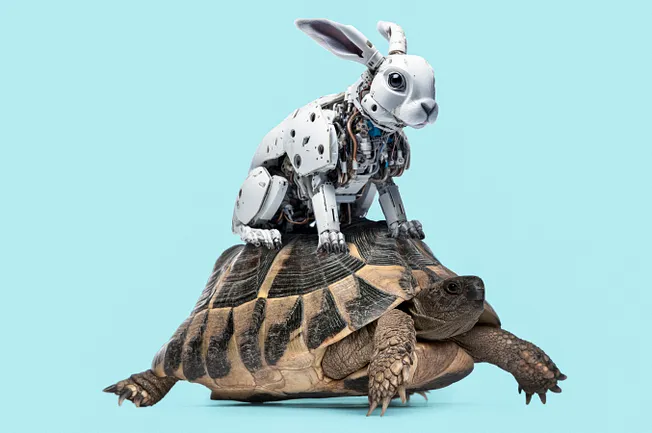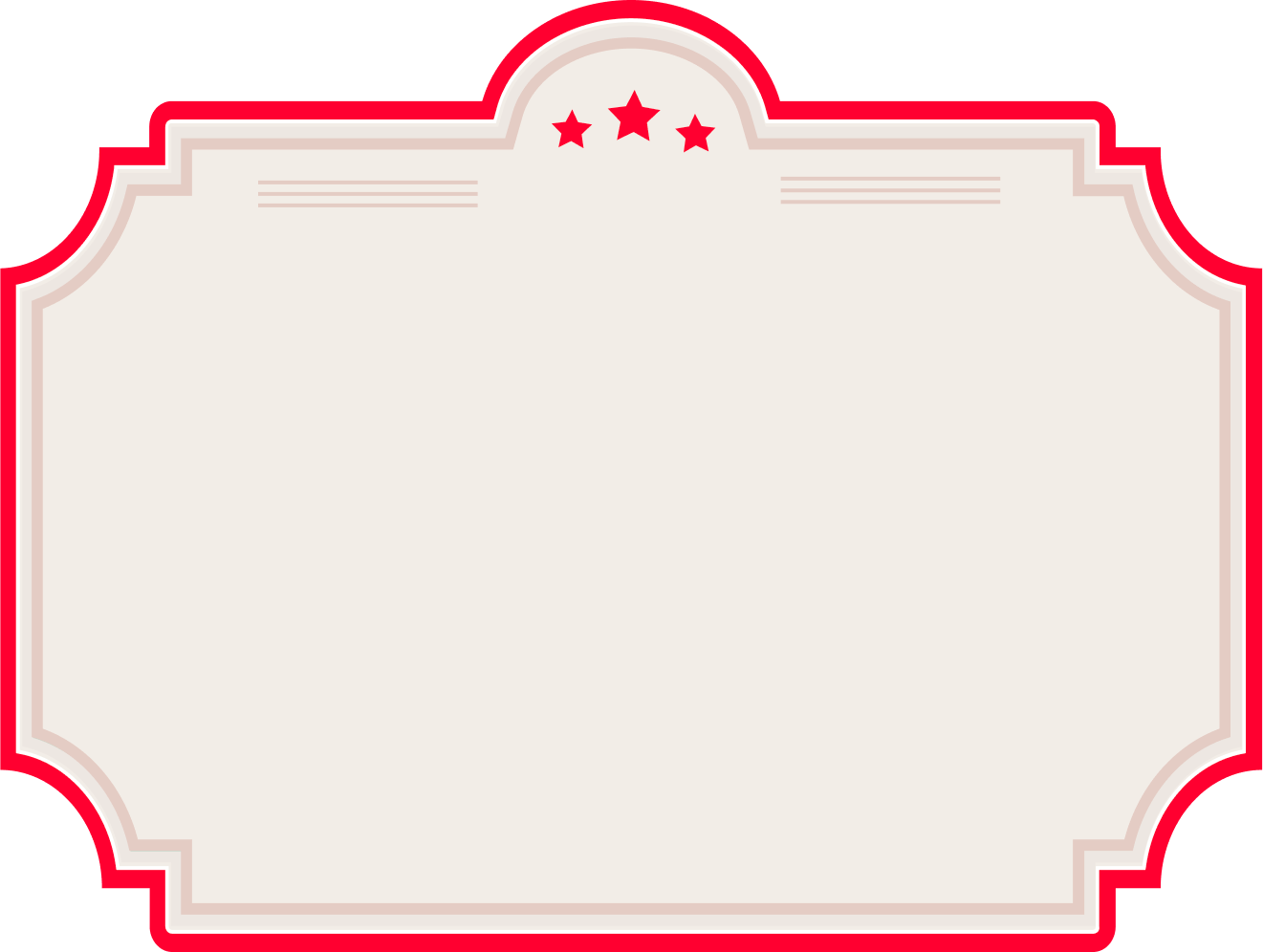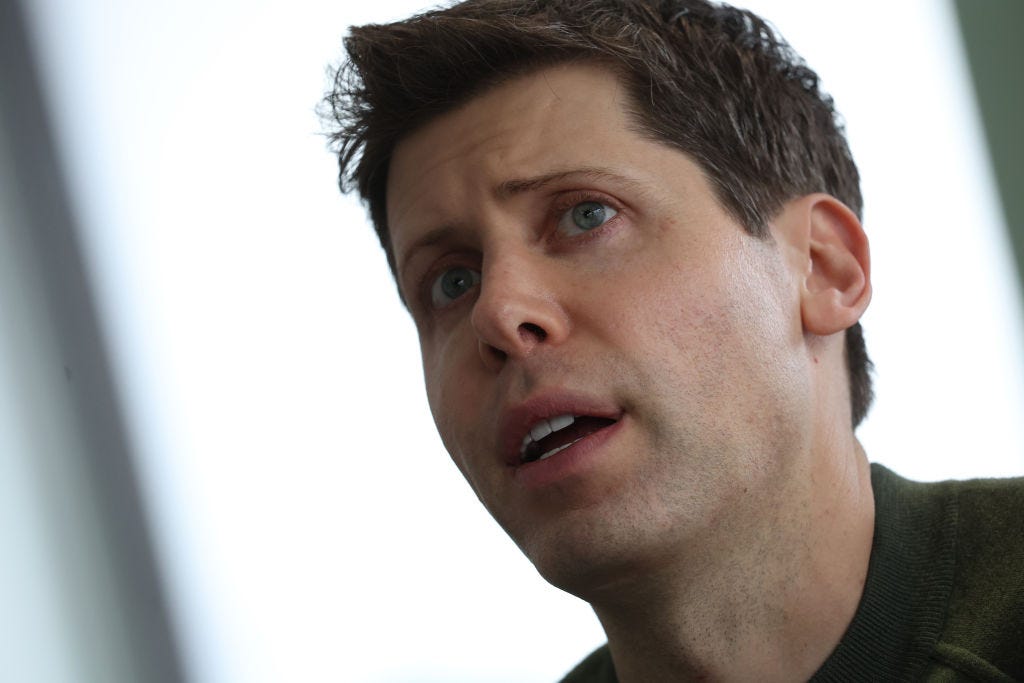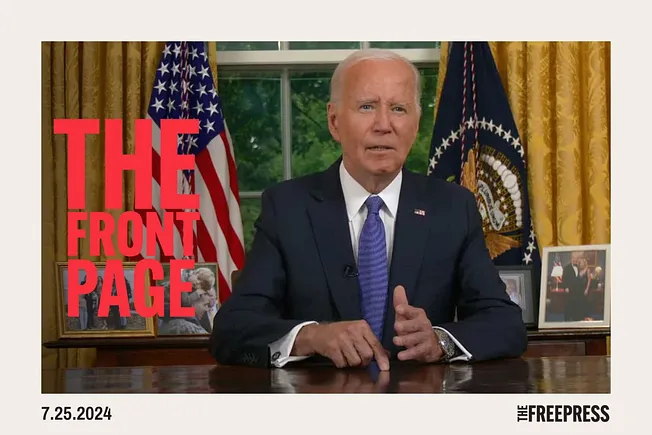Six days before Thanksgiving, the tech world was glued to perhaps the wildest corporate drama in the history of Silicon Valley. The four-day fight for control of OpenAI started with the abrupt ouster of Sam Altman as CEO of the company on a Friday, and ended with his reinstatement and the dismissal of the board that fired him the following Tuesday.
The boardroom power struggle was an epic battle for control of a business set to dominate the decade—and beyond. But it was also a fight over the soul of Silicon Valley, an ideological contest between two competing visions of the future.
On one side are the effective altruists, or EA for short, who see technology—and AI in particular—as an existential threat to humankind that must be carefully managed through regulatory bodies. The other camp calls itself e/acc—pronounced ee-ack and short for effective accelerationism, an intentional play on EA. E/accers worry we won’t fully embrace AI’s potential and think the market is the best force to guide its development.
Though Altman does not call himself e/acc, his shift to commercialize AI and his relentless push for the growth of his company have made him the poster boy for the movement. The two AI products he launched last year—language bot ChatGPT and its image-based counterpart Dall-E—have terrified and amazed the public by producing novels and art as good as some man-made equivalents. One chatbot even encouraged a journalist to leave his wife.
These early signs of AI developing a mind of its own, and maybe even a consciousness, have effective altruists worried about far more serious consequences.
Liron Shapira, 36, an entrepreneur who gives thousands annually to AI safety initiatives, told me that he thinks AI “is going to kill us.” How, exactly? One possible scenario is extinction by nanobots: tiny robots controlled by AI that would infinitely self-duplicate until they consume all the biomass on the planet—including the entire human race. But Shapira believes it’s more likely that AI could use a virus to gain control of every computer on the planet and start destroying us from there.
According to Shapira, guessing exactly how AI will destroy us misses the point: “Whatever goal it has, if it’s much smarter than you, it will beat you.”
While others fret about doomsday scenarios, Altman has reveled in the paradigm shift. In 2022, he tweeted “you cannot outaccelerate me.” In an interview this month, Altman defended his accelerationist position: “You gotta deploy,” he said.
Despite his gung-ho approach to growth, OpenAI was founded in 2015 by Altman along with Elon Musk, Greg Brockman, and Ilya Sutskever as a nonprofit to promote AI safety. But as the power of AI became realized, the board began to split. Two of the board members who launched the failed coup against Altman are supporters of effective altruism.
Almost all of the 770 OpenAI employees who threatened to quit unless Altman returned to his post as CEO are of the e/acc mindset, a source told The Free Press. Justin Murphy, a writer and self-described accelerationist, added that “Sam Altman was pretty aggressive with filtering out people who were not aligned with him.”
And now Altman is back in charge, and the e/accs are in control.
I met Augustus Doricko, 23, less than a mile from the ocean in El Segundo, a mini hard-tech Silicon Valley that’s only a thirty-minute drive from Hollywood. It’s his home away from home: this corner of L.A. is just “one friend’s factory after another homie’s laboratory.”
Contrary to the hoodie-wearing tech founder that America loves to hate, e/acc devotee Doricko looks like a surfer from an ’80s movie, a bygone symbol of American greatness and optimism.
Born in 2000, Doricko was named after Augustus Caesar. Doricko likes his first name because of its connotations of greatness, its reference to the Roman empire, and because having an A name allowed him to be at the front of alphabetically determined lines in his schooling.
“You know, when I turned nineteen, like on my nineteenth birthday, I was quite upset because I’d failed to live up to my namesake," says Doricko of Augustus, who by his age was raising an army and plotting to claim the title of emperor.
Doricko believes e/acc was a rebellion against nihilism. He sees it as part of a “revolutionary, Zoomer perspective,” according to which “the world can be better rather than worse.” He recently founded a cloud seeding company, Rainmaker, which is working to solve the problem of drought. He calls the firm his “magnum opus,” and says it has received millions in seed funding, though he refused to disclose particulars.
Right now, with six employees, Rainmaker is working with drones to put chemicals in the clouds to manipulate the weather, bringing rain to crops on tens of thousands of acres of land, he said. Doricko said he’s confident Rainmaker will end drought in the American West, and eventually, around the world.
“I want to terraform the planet. I want to extend the Great Plains from the Midwest down into West Texas, New Mexico, Arizona. I want to prevent hurricanes from ever being a problem again. I want to prevent wildfires from ever being a problem again, and then apply this to other planets in decades and decades from now,” he said of his mission statement.
The e/acc movement, he adds, is a riposte to his generation’s apocalyptic obsessions, including climate change. It’s “a revolt from the Zoomers against the death cult that we’re so sick of because we spent our whole life in it,” he said.
A recent convert to Eastern Orthodox Christianity, Doricko told me that he is driven by God to build. When I asked Doricko what comes after his start-up, he told me he wants to start a family, in keeping with the creationist party spirit of e/acc.
And, if he has the honor, he says, “it’d be a great privilege and a great blessing if I got to commission the construction of a cathedral someday.”
E/acc was born late at night in May 2022 when two anonymous Twitter users, Beff Jezos and Bayeslord, hosted a conversation on Twitter Spaces about technological progress. At first these chats, mostly just between Beff and Bayeslord, drew less than ten people, but soon expanded to dozens of listeners. Now, these discussions draw up to 10,000 listeners when they happen a few times a week.
In July 2022, Beff and Bayeslord published a e/acc manifesto that summarizes e/acc “in a nutshell” with four bullet points:
Stop fighting the thermodynamic will of the universe
You cannot stop the acceleration
You might as well embrace it
A C C E L E R A T E
Since publishing their treatise, they have shaped a community that mostly bonds online, sharing memes and celebrating “building”—whether it be brand-new cities, AI personal assistants, nuclear fission technology, or Dyson spheres that could take humanity to space.
Their logo, designed by OpenAI staff member Will DePue, is an exponential curve. There’s even a flag and a merch shop, run by Beff himself. Its homepage reminds its patrons: “The essence of e/acc is a belief, based in thermodynamics, that life inherently seeks continuous expansion and that our civilizational destiny lies among the stars.”
This month, Beff’s identity as tech founder Guillaume Verdon was revealed by a Forbes investigation. A Canadian with a PhD in applied mathematics and quantum information, he worked at Alphabet, Google’s parent company, for three years as a research scientist before leaving to start his own quantum computing start-up, Extropic. (Bayeslord’s identity is still unknown.)
After Verdon was unmasked, he announced $14.1 million of seed funding. In a statement announcing the raise, Verdon said Extropic was “building an AI supercomputer by harnessing the first principles of thermodynamics and information, like an alien would.”
Many of e/acc’s adherents are clustered in or close to San Francisco, not just because it is the world’s leading tech hub, but because the once shining city—now beset by crime and homelessness—represents all the stagnation the e/acc movement opposes.
One e/accer in the Bay Area is venture capitalist Marc Andreessen, who recently added “e/acc” to his X bio and wrote a Techno-Optimist Manifesto that cites the leading lights of e/acc as “patron saints.” In his call to arms, Andreessen states: “We believe that there is no material problem—whether created by nature or by technology—that cannot be solved with more technology.”
Chris Prucha, co-founder of note-taking and productivity platform Notion, valued at $10 billion, told me that e/accs like himself and Y Combinator CEO Garry Tan (who is an investor in Verdon’s start-up) are supporters of GrowSF, a nonprofit trying to fix the increasingly dystopian city.
GrowSF is pushing for a boom in housing construction, robust math and science education, and a well-funded police department that can tackle the crime that’s an impediment to the city’s growth. Prucha called GrowSF “the first physical manifestation” of e/acc.
Prucha said e/acc is fighting a “two-front war” to save San Francisco and to defeat the AI doomers.
But e/accs have their work cut out for them, because their EA rivals currently dominate policy discussions in Washington. In October, President Biden issued an executive order establishing “new standards for AI safety and security.” And, earlier this month, Secretary of Commerce Gina Raimondo damned e/acc in a discussion at the Reagan National Defense Forum: “Effective acceleration,” she said, “we can’t embrace that with AI. It’s too dangerous. You can’t break things when you’re talking about AI.” Meanwhile, European Union lawmakers recently passed new AI regulations.
In many cases, these new rules have the backing of the world’s biggest tech firms, like Google, Apple, and Facebook, who use AI safety as an excuse to “keep a lot of start-up upstarts from competing,” Antonio García Martínez, a tech founder and the author of Chaos Monkeys, told The Free Press.
Ironically, what scrappy start-ups were thirty years—or even ten years—ago are now incumbents that have lost their founding dynamism and optimism. Many Big Tech companies are natural doomers, because innovation threatens the billion-dollar institutions they’ve built.
“They don’t want to disrupt things,” says García Martínez, who sees e/acc as a return to the original pioneering spirit of Silicon Valley.
“I would see e/acc as a return to what the tech Valley culture was to me when I bailed on Wall Street in 2008,” he said. “A lot of these tech companies that used to be revolutionary are the Man, the establishment.”
Julia Steinberg is an intern at The Free Press. Follow her on X @juliaonatroika. For more on the AI debate, read Marc Andreessen’s essay, “AI Will Save the World,” and Paul Kingsnorth’s response, “Rage Against the Machine.”
And to support more of our work, become a Free Press subscriber today:















our Comments
Use common sense here: disagree, debate, but don't be a .